Will there be ethical ramifications for Kevin Urick, the former prosecutor who handled the Adnan Syed case?
Adnan Syed was in court yesterday on a motion to vacate his sentence. (It was granted!)
This post discusses the potential personal aftermath for Urick.
Table of Contents
Background of Kevin Urick’s Role.
The motion was filed by the State (not the defense).
Mosby’s office found Brady issues, discovery issues, and a range of credibility issues for witnesses.
As this post focuses mainly on the ethical exposure for prosecutor Kevin Ulrick, I’ll let you read my tweet thread below on the basic allegations in the motion to vacate:
Because Urick was the lead prosecutor during the Syed trial he would be the prosecutor, generally speaking, responsible for any ethical lapses in the handling of the case.
Holding Mr. Urick personally responsible would require further investigation by the bar. The author of this article merely advocates for a full investigation into the Brady violations in this case.
Ethical Duties of Kevin Urick (And Other Maryland Prosecutors).
In addition to the standard rules of attorney professionalism in Maryland, prosecutors have an additional set of rules that they must follow.
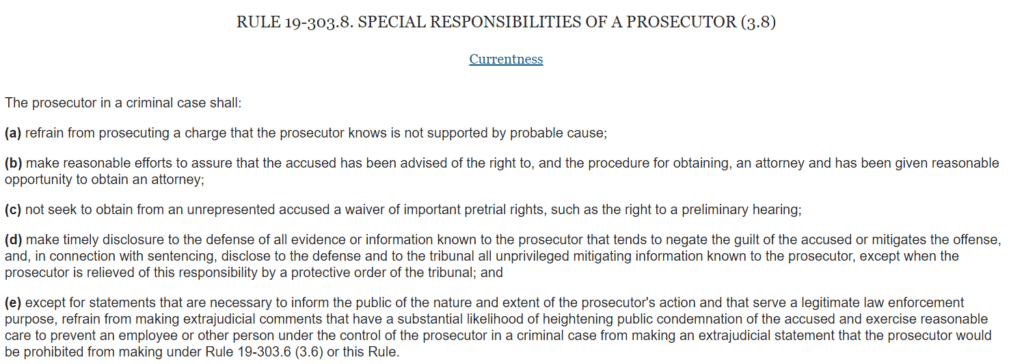
The most relevant is 3.8(d):
(d) make timely disclosure to the defense of all evidence or information known to the prosecutor that tends to negate the guilt of the accused or mitigates the offense…
MD Rules Attorneys, Rule 19-303.8
This language is particularly important considering the court’s order vacating Adnan Syed’s sentence.
Brady Violations in the Adnan Syed Case.
In granting the motion to vacate Adnan Syed’s conviction, the Court found that the current prosecutor’s office had proven a Brady violation by Syed’s trial prosecutor. And, that the trial prosecutor violated Md. Rule 4-263(d).
As you can see, this language in the court order tracks the language of ethics rule 3.8(d).
There was evidence in the prosecutor’s trial file that another person had threatened to kill the victim in the case. Not disclosing this was a Brady violation.
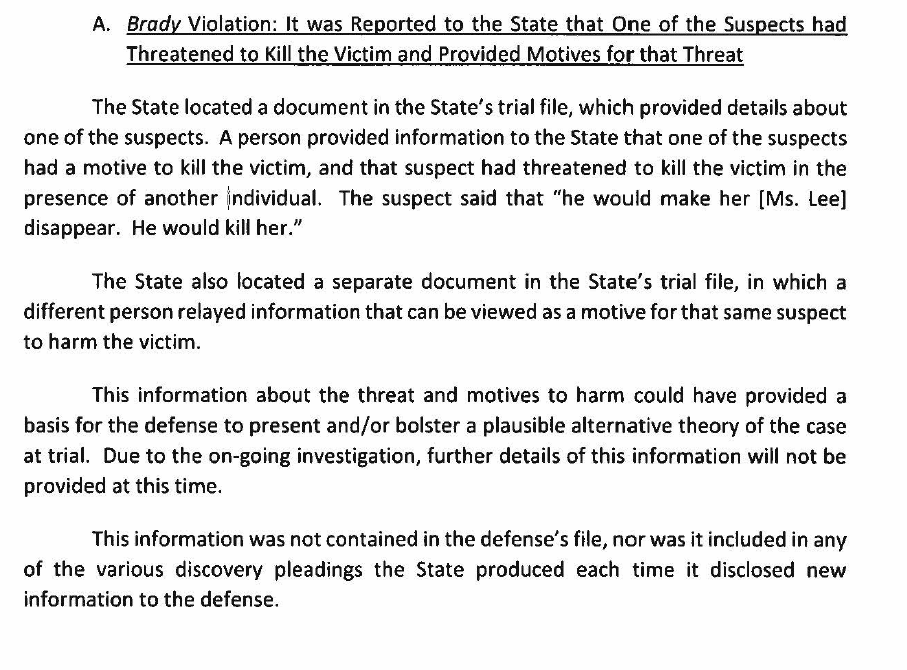
Professor Colin Miller caught an extremely important comment from an Intercept interview with Urick back in 2015. Urick was asked if there was an alternative suspect and he said no. This completely contradicts the other-suspect Brady information current prosecutors found in the trial file this year.
Independently horrifying is that Ulrick swoons over his precious cell phone evidence in the interview.
Both the current prosecutor and defense attorney consulted an expert that agreed that this cell phone evidence should have never been admitted in court.
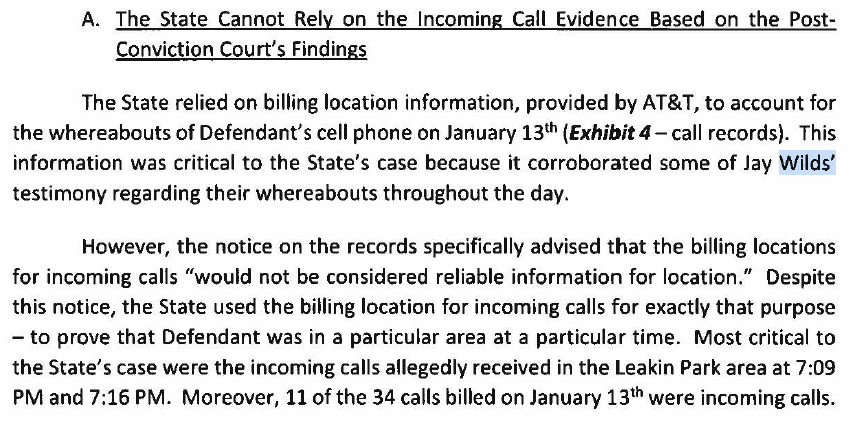
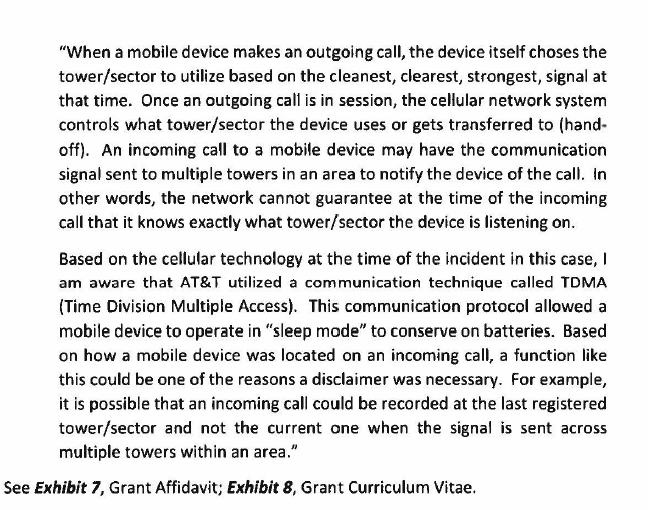
Brady and Md. Rule 4-263 evidence has to be turned over by prosecutors without the need for demand.
Here, the defense attorney had made specific multiple requests for Brady. The defense trial attorney had a hunch that the State was not providing anything.
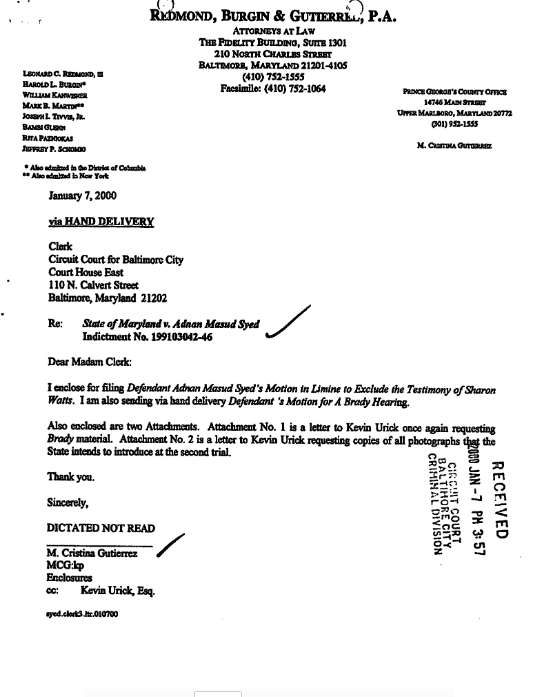
Unfortunately, the defense attorney has now passed on. Hopefully, wherever she is, she can see her client released, and her positions vindicated.
Historically Prosecutorial Misconduct has Gone Unpunished.
As a criminal defense attorney practicing for 17 years, it has only been recently that we have started to see prosecutors be held accountable for their discovery violations.
Even now it is rare. Most recently, Joseph Cassilly was disbarred for various ethical violations.
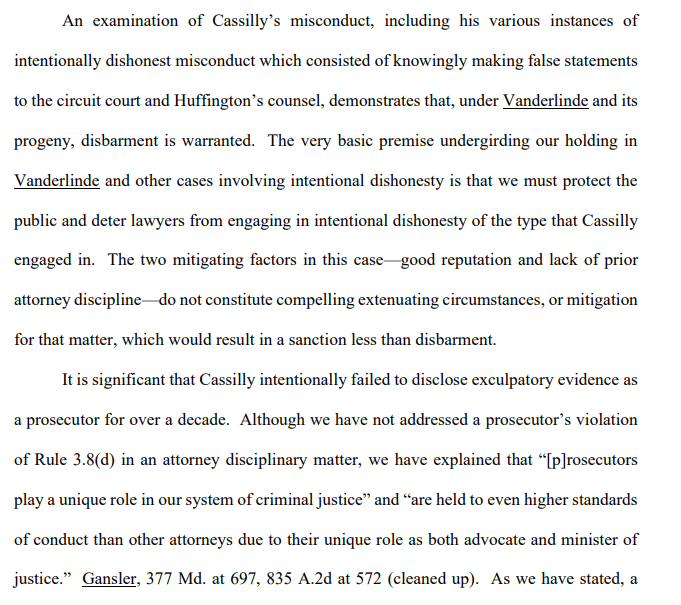
Every case is different. Bar counsel in the Cassilly case had many more provable instances of ethical misconduct. The Court of Appeals found that Cassilly failed to disclose exculpatory evidence.
That decision is in-depth and worth a read here:
Every case is different. Bar counsel in the Cassilly case had many more provable instances of ethical misconduct.
The Court of Appeals found that Cassilly failed to disclose exculpatory evidence. That decision is in-depth and worth a read here. Cassilly was disbarred.
Would an investigation by bar counsel uncover even more in the Adnan Syed case? We will have to wait to find out.
Bar counsel already has a court order finding Brady and discovery violations. A man spent two decades in prison. An investigation by the bar must be done.


